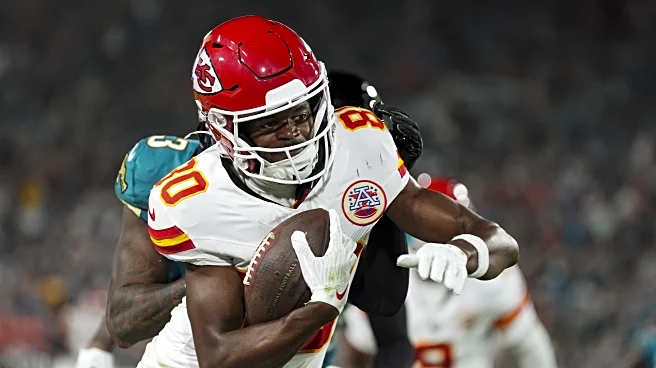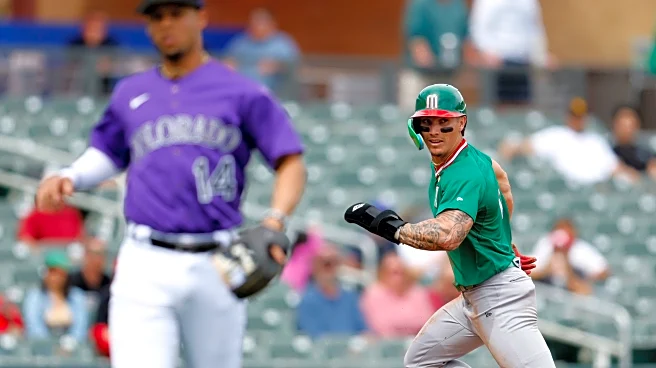What's Happening?
Alex Pereira, a former two-division champion, has disclosed that he was physically compromised during his title loss to Magomed Ankalaev at UFC 313. Despite defending all 12 takedown attempts from Ankalaev, Pereira lost by unanimous decision. Rumors circulated post-fight, suggesting Pereira was battling a broken hand and norovirus. Pereira, who has faced challenges in the 205-pound division since losing the middleweight title to Israel Adesanya, admitted he was at only 40% during the fight. As Pereira and Ankalaev prepare for their rematch at UFC 320, Pereira remains optimistic about his chances, stating that even a slight improvement in his condition could lead to a decisive victory.
Why It's Important?
Pereira's revelation highlights the physical demands and challenges faced by fighters in the UFC. His admission of being at 40% during a title fight underscores the resilience and determination required in the sport. The upcoming rematch with Ankalaev is significant as it offers Pereira a chance to reclaim his standing in the light heavyweight division. The fight also holds implications for the UFC, as a healthier Pereira could alter the dynamics of the division, potentially impacting rankings and future matchups. Fans and stakeholders in the MMA community are keenly watching to see if Pereira can overcome his previous setbacks and deliver a performance that matches his potential.
What's Next?
The immediate rematch between Pereira and Ankalaev at UFC 320 is set to take place in Las Vegas. Pereira's improved physical condition could lead to a different outcome, potentially reshaping the light heavyweight division. Stakeholders, including UFC analysts and fans, are anticipating the fight to see if Pereira can capitalize on his recovery and training improvements. The outcome of this rematch could influence future title defenses and contender matchups within the division.
Beyond the Headlines
Pereira's situation raises questions about the pressures athletes face to compete despite physical ailments. The ethical considerations of fighting while injured, and the potential long-term health impacts, are areas of concern. This scenario also highlights the importance of transparency and communication between fighters, coaches, and medical teams to ensure athlete safety and well-being.










